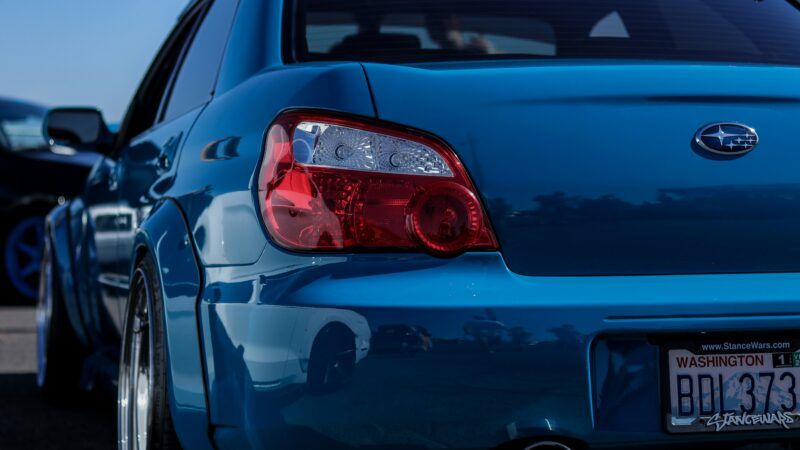Subaru Is the Latest Carmaker To Hike Prices in Response to Tariffs
Subaru says it has "adjusted its pricing in response to current market conditions," but we all know what that means.

New cars from Japanese automaker Subaru will reportedly increase in price by several hundred dollars in the coming weeks—and tariffs are the likely culprit.
Officially, Subaru of America says it has "adjusted its pricing in response to current market conditions." That's what the company said in a statement to Reuters, which first reported on the price hikes.
The biggest change to the market for imported cars, of course, is the 25 percent tariff that the Trump administration announced in March. At the time, the White House said the tariffs would incentivize domestic automobile manufacturing and reduce "American reliance on imports of foreign automobiles." The auto industry responded by pointing out that global supply chains are essential even for vehicles that are made in the United States and warning that the tariffs would likely increase sticker prices for consumers.
That's what seems to be happening. Subaru is set to hike prices on its vehicles by between $750 and $2,000 each, depending on the model and trim line, Reuters reported. The news service cited a notice that was sent to Subaru dealers.
Subaru is the second automaker to announce higher prices in response to the tariffs. Last month, Ford Motor Company announced that it would raise prices on three of its models by $2,000 apiece—just days after the company said tariffs would reduce its annual earnings by $1.5 billion, as Reason's Joe Lancaster reported at the time.
Americans imported nearly 8 million cars in 2024, and the biggest sources of imported cars were Mexico, Japan, and South Korea.
When asked in March if his plans for higher tariffs on cars would increase prices for American consumers, President Donald Trump said he "couldn't care less" if that was the outcome.
Keep in mind that higher prices are just the most visible consequence of higher tariffs. There are other, unseen consequences, like the people who might have bought a new car this year, who will instead put off that purchase due to the higher prices. They will continue to drive an older, potentially less safe, less fuel-efficient, or simply less fun car instead. The car dealerships will make fewer sales. Ultimately, car manufacturers may see less demand for their products.
In March, Cox Automotive predicted that there would be 700,000 fewer cars sold in America this year, a 4.3 percent decline from last year's total, as Americans pull back on spending due to the higher prices created by tariffs.
This isn't Subaru's first tangle with high tariffs on vehicles imported to the United States. One of the most famous examples of so-called tariff engineering—that is, a legal way of dodging tariff costs by physically altering an imported product—involves a small pickup truck that Subaru used to manufacture. The Subaru Bi-drive Recreational All-terrain Transporter, or BRAT, was imported to the U.S. with seats installed in the pickup truck's bed, which allowed it to be classified as a passenger vehicle (tariffed at a rate of 2.5 percent in those pre-Trump days), rather than a small cargo truck (subject to a 25 percent tariff that dates back to the 1960s).
Alas, with Trump's higher tariffs on all cars, there's likely no similarly easy and hilarious way for Subaru to dodge these taxes. Instead, they'll be passed along to buyers.


Show Comments (71)